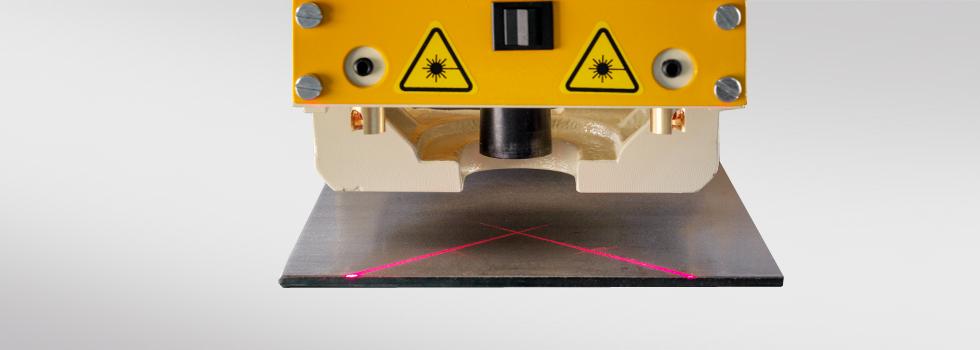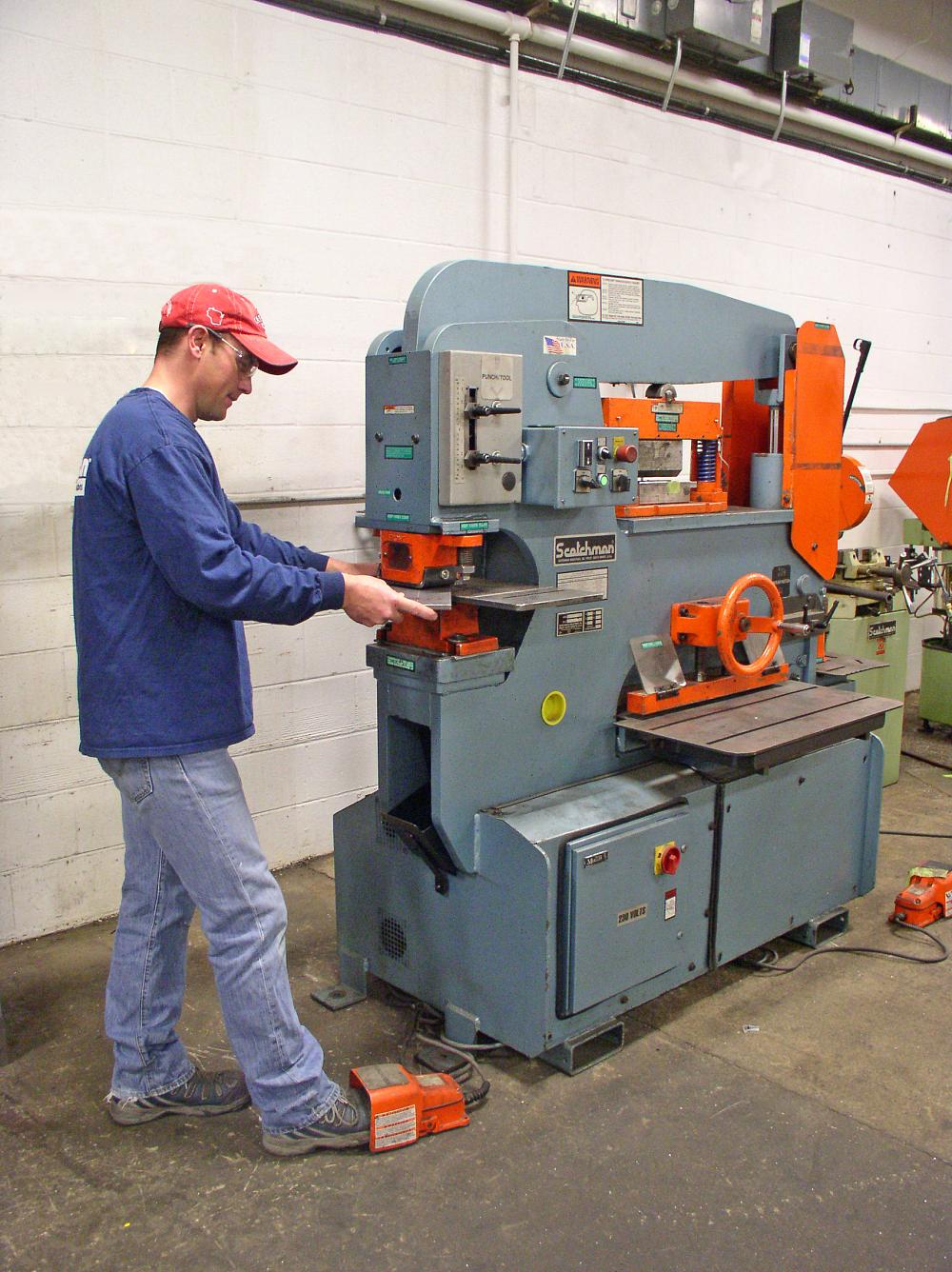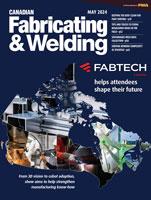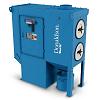Associate Editor
- FMA
- The Fabricator
- FABTECH
- Canadian Metalworking
Versatility and Strength
Exploring the ironworker.
- By Lindsay Luminoso
- October 21, 2015
- Article
- Fabricating
Most fabricating shops are familiar with the ironworker. They have been around for years and the technology is tried and true. Ironworkers continually remain popular due to the versatility they offer users.
When it comes to understanding why ironworkers have experienced the longevity they have, Jerry Kroetch, president of Scotchman Industries, explains, “That’s [something] we have asked ourselves for many years. An ironworker is one of the most used and abused pieces of equipment that most companies have.”
The technology hasn’t changed all the much over the last several years, but the machine still remains a popular choice.
“No other machine can do as much as an Ironworker does, like shearing, punching, bending, notching and cropping, for such a low buy in,” explains Kurt Neiman, president of Neiman Machinery Sales Inc. “Ironworkers still remain very competitively priced compared to other fabrication machine tools.”
Neiman uses the example of the Swiss Army Knife to explain the machine’s popularity.
“Its versatilities lend well for either a warehouse maintenance shop, transportation builder or repair facility, and the steel construction industry to everything in between,” he continues.
“They are very versatile, you have the ability to punch holes, shear plate, shear solid rods, notch, and sometimes bending applications with optional tooling,” concurs Bernie Walter, vice president of Westway Machinery. “Rather than having three or four machines, the ironworker is much quicker. Anyone that is into any sort of production will benefit. And really, they are not very expensive.”
Another advantage of the ironworker is its ease of use. Kroetch explains that the ironworker is easy to set up and most operators run the machine with very little training. “If not for having an ironworker things would need to be done the hard way, and they would be time consuming or they would need to be done on very expensive machines that need a trained operator.”
Ironworkers are also extremely durable, which is very important in a shop floor environment. Investing in an ironworker means having a solid and working machine for a significant period of time, making it a sound investment.
“When it comes to ironworkers, the only thing that seems to go on them is the tooling wears out,” says Walter. “The actual machines seem to last forever.

Accessories can enhance the ironworker's capabilities, this laser marking system can be added for the punching feature.
“This is one of the strengths of the ironworker. The machine itself hasn’t changed much over the last couple of years, but where they advanced is in custom tooling. As Walter mentions, the tooling can wear out on machines, which is why it is important to buy quality tooling designed for your specific applications.
“The thing that helps us is the fact that we not only build the machine we also build custom tooling,” says Kroetch. “Over the years we have sold hundreds of machines not because the customer needed an ironworker but because we could build the tool he needed and it just so happened to be mounted in an ironworker.”
“I have worked at Scotchman for 38 years and I can walk out into our special tooling department next week and say, ‘We can build that too.’ Our customers’ imagination is our limit.”
When it comes to purchasing an ironworker, there are many things to consider. There are so many different models and styles available, depending on the desired application. Companies can work with you to help identify the specifications you need in order to get the right machine.
“To purchase the correct machine you need to know the material thickness and the maximum diameter hole you wish to punch in that thickness. This tells you the tonnage of machine you need,” says Kroetch. He continues by explaining additional information you should know, including the maximum size angle iron and the maximum thickness and width of material you want to shear. Any one of these factors will determine the size required for your applications.
Neiman points out that automation can play a significant part in the type of machine needed. Do you need CNC or not? “The world of ironworkers continues to evolve with more automation for increasing production and reducing set-up, along with new machine models,” he explains. “Some of the larger ironworker manufacturers are expanding the offerings for more automatic feed lines for processing flat bars, angle irons, etc.”
For Walter, another consideration to think about is making sure you can get punches and dies in quickly. “You want to make sure the machine has good availability of tooling.” If the tooling wears and you cannot get replacements, the machine downtime can cause a backlog in production.
The machines themselves can be basic for simple jobs or highly complex with many additional accessories for advanced work. Optional accessories can help save time and money. Some of the more popular features out there include conveyors, feed tables, measuring systems, and auxillary lighting systems.
“Having a large choice of options and accessories makes the ironworker more flexible, and the more flexible the machine is, the better the workshop can adapt easily to whatever work comes through the door,” explains Neiman. “This is especially important in a job shop environment or where you want to improve profitability.”
Including additional accessories to any machine can increase productivity. Walter explains that adding a measuring system like gauges to a machine can make using an ironworker much more efficient. The operator is not forced to mark the material by hand any eyeball it through the processes, which can be extremely time consuming. “It’s nice to have gauges, they make the job easier,” he adds.
That being said, one of the most important productivity enhancing tips is to ensure that the machine is running correctly and that all tooling and accessories are appropriately maintained. One of the most common factors in machine downtime is lack of proper maintenance from machine operators.
“We see it time and time again, a machine with worn or broken parts, and in our opinion, most of these issues could be eliminated by simple maintenance,” concludes Neiman.
“As mentioned an ironworker is one of the most abused machines in a customer’s shop. Proper maintenance is the best tip I can offer,” reiterates Kroetch.
There are so many features and factors that affect the overall performance of the ironworker. When it comes to finding the right machine for your needs there are many things to consider. However, it is important to keep in mind that not all ironworkers are created equal. Finding the right machine with the right specifications can be easy with proper planning and working with experts to explore options.
The ironworker has been around for decades and continues to remain a common machine on the shop floor. Its durability and versatility has allowed this machine to remain a valuable asset to any fabricating shop.
About the Author

Lindsay Luminoso
1154 Warden Avenue
Toronto, M1R 0A1 Canada
Lindsay Luminoso, associate editor, contributes to both Canadian Metalworking and Canadian Fabricating & Welding. She worked as an associate editor/web editor, at Canadian Metalworking from 2014-2016 and was most recently an associate editor at Design Engineering.
Luminoso has a bachelor of arts from Carleton University, a bachelor of education from Ottawa University, and a graduate certificate in book, magazine, and digital publishing from Centennial College.
subscribe now


Keep up to date with the latest news, events, and technology for all things metal from our pair of monthly magazines written specifically for Canadian manufacturers!
Start Your Free Subscription- Industry Events
Automate 2024
- May 6 - 9, 2024
- Chicago, IL
ANCA Open House
- May 7 - 8, 2024
- Wixom, MI
17th annual Joint Open House
- May 8 - 9, 2024
- Oakville and Mississauga, ON Canada
MME Saskatoon
- May 28, 2024
- Saskatoon, SK Canada
CME's Health & Safety Symposium for Manufacturers
- May 29, 2024
- Mississauga, ON Canada





















